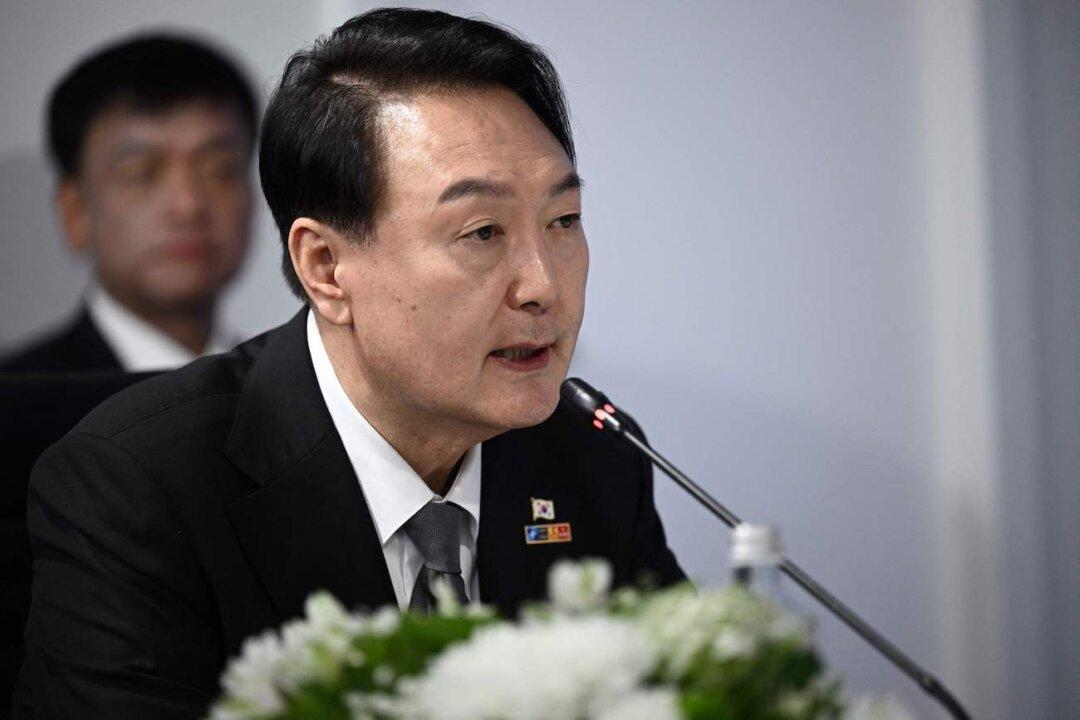South Korea’s president on Monday urged China to use its influence to stop North Korea from conducting a nuclear test, warning that failure to do so would result in an influx of military assets in the region.
South Korean President Yoon Suk-yeol said that North Korea’s missile provocations caused Japan to increase its defense spending and the United States to station more military assets in the region, which he believed would also affect China.





